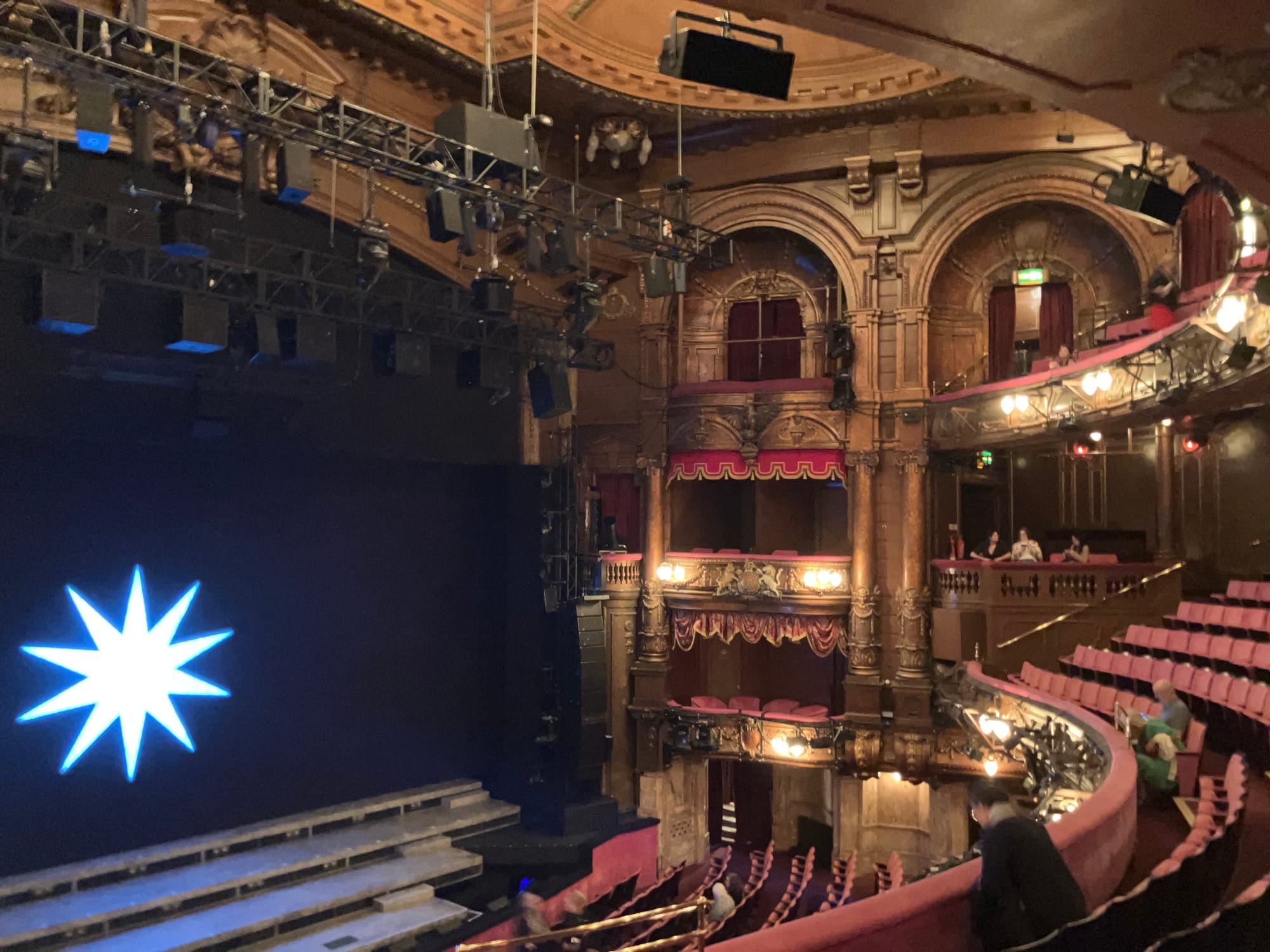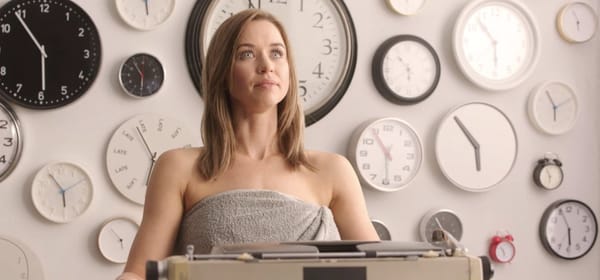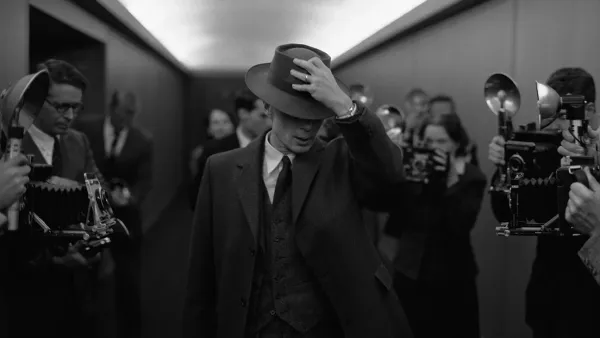EVITA: An Argentinian Theatre Aficionado Perspective
"I came from my people, they need to adore me, so Christian Dior me, from my head to my toes."
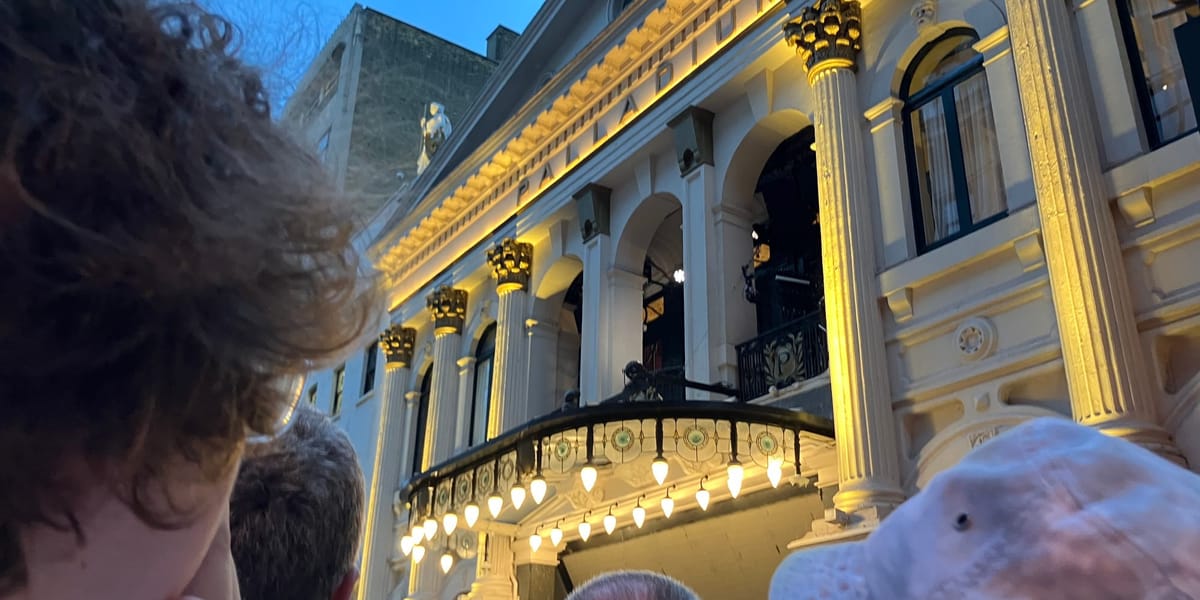
Machiavell me, make me an Argentine rose.
The minimalist staging of ‘Evita’ is no radical reinvention, but the lighting, blocking and props are. The use of a staircase as a stage fits so seamlessly into the musical that you wonder why it wasn't part of the original production. In a story that deals with the ascend and fall of a political and historical figure, it seems like the most obvious choice. May I, at this point, suggest a remake of the movie adaptation of the musical, but this time with Rachel Zegler? I also hope a cast recording is not too far away, because this cast is simply superb.
The leading trio is phenomenal, but the ensemble has to be highlighted here: the straining demands that are put on it are met with excellence and grace. Even the (obligatory) Tango number (because if it’s Argentinian, it has to have a sexy tango number, right?), which would have profited from a more melancholic direction, in line with the actual roots of tango music, is a choreographic feat.
Coming back to the leading lady: one thing is evident. Rachel Zegler LOVES playing Evita. Zegler’s stage presence emanates with such force that your seat choice does not matter; it is palpable from every seat in the theatre. She is not a star in the making; she IS one.
The vocals she manages to produce are simply astonishing. You might think I am exaggerating, but as a seasoned musical theater connoisseur, I understand the lengths Zegler has to go through to achieve the control with which she slides across the musical landscape of Evita. Please go see it yourself, you don’t even have to pay to see her rendition of ‘Don’t Cry for Me Argentina’.
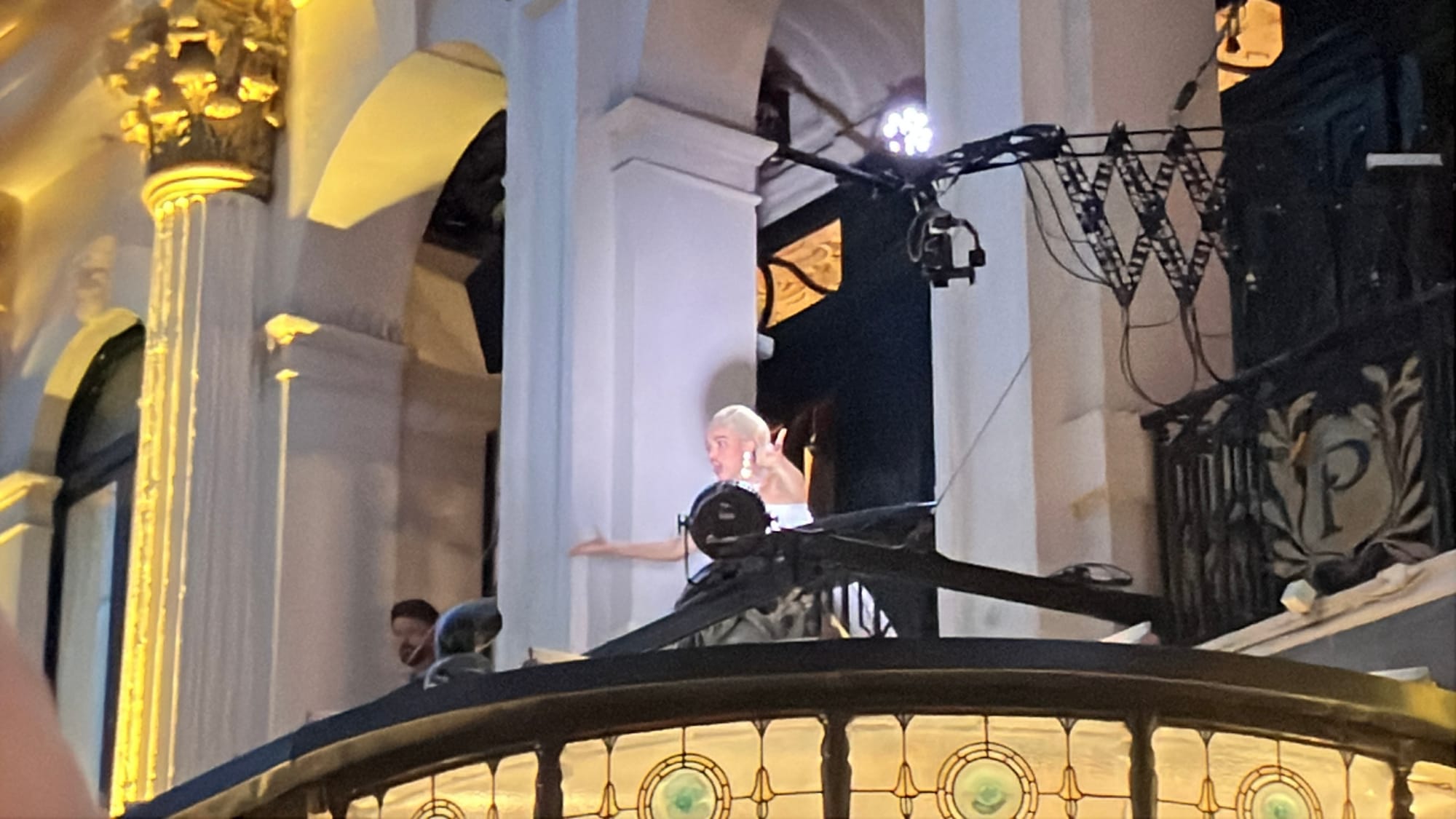
This brings me to the infamous balcony scene. After having witnessed it as one of the ‘descamisados’ first, and later inside the theater, I do not understand the backlash the production received at the beginning of its run. I can only guess that those who got to see it first and were caught off guard by this choice, must have not understood the narrative. It was a deliberate choice; one that made sense and adds a meta layer to it all. Once inside, and the audience saw Zegler on the screen, there was a viscerally felt sense of awe go through the audience. It was a brilliant choice. No notes.
Back to Rachel Zegler.
Apart from the fact that I am incredibly happy that an actual (fellow) Latina got to play the role (for the second time only in an official production!) I have to praise Zegler’s diction. Something that our editor-in-chief already remarked on, and I was able to confirm on my end. The role of Evita is taxing in more ways than one, but Zegler manages it with such grace that the role almost seems to be written for her. Demanding of her yes, but making her grow as a performer and allowing her to shine. She brings a softness (not weakness!) to the machiavellian nature of the role in certain moments, which works amazingly because she is able to balance both with ease. This is further highlighted in how she manages to strike a balance between danger and spectacle in the number ‘Rainbow High’. Further, the quality of her voice is reminiscent of the very first Evita - Julie Covington - and fits the role like a glove. In my humble opinion, it makes the role more interesting than a mainly aggressive Evita.
One more thing: I am glad that the production does not shy away from showing you the violence that Evita and Peron’s characters are willing to exercise (and did in reality). Seeing the Argentinian flag waved in that context made me have a physical reaction and has stayed with me long after. For me personally, it further highlighted how little the rest of the world really knows Argentina, about all the brilliant minds it has birthed, the natural beauty it harbours, the harrowing history it still unravels to this day, and within all that some of the most caring and truly beautiful people I've known, that call it home. It is so much more than football, political corruption and tango. I have to say, it hurts.
Hearing the ensemble enthusiastically announce a 'new Argentina' for a political leader that caused so much pain, and whose choices affect the political and economic trajectory of this beautiful country to this day, chilled me to my bones. It was hard to hear the titular character be called a saint, I'll admit that.
I also understand that history is nuanced and complex; I won't deny that. I fear that nuance is something that often gets lost in conversation, but I'm glad it was picked up here.
Argentina has gone through a lot, and I wish to see it flourish and be healthy; that’s the last thing I will say about it.
Whether it’s for the staging, the cast or because you’re simply intrigued: If you have the chance, please go see ‘Evita’, as it is brilliantly executed and worth every second. It will profoundly affect you and make you want to go see it again. I know I would if I could.
